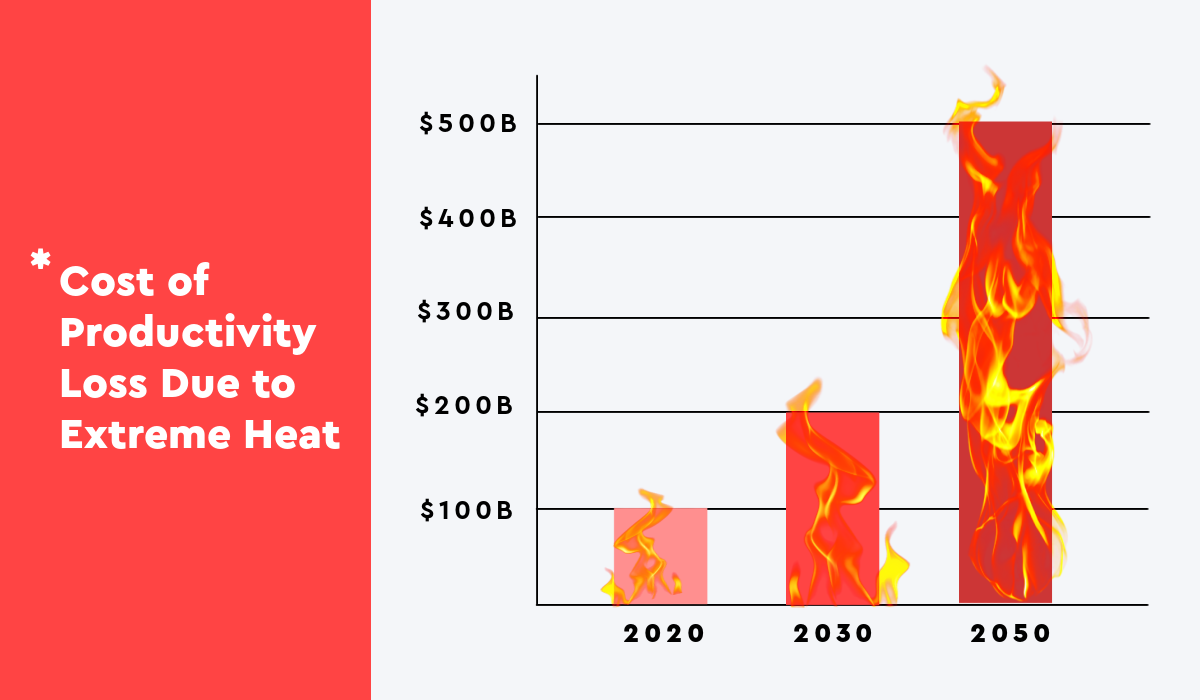Extreme Heat's Economic Impact: Understanding Productivity Loss and Rising Sleep Disruptions

Extreme Heat Drains Billions from the Global Economy: Key Drivers Revealed
The Escalating Financial Toll of Soaring Temperatures
Extreme heat is now recognized as a formidable challenge to economic stability worldwide, with losses mounting into the hundreds of billions of dollars annually, as highlighted by Financial Times reportage. Economic research and global agencies indicate this staggering figure stems from tangible impacts on work performance and sleep, both of which are foundational to productivity and well-being.
Projections from leading economic forums underscore the magnitude of the problem. By 2030, the world's economy could face an astonishing $2.4 trillion in lost productivity each year due to these conditions. This phenomenon is not merely theoretical; it is already unfolding across industries. In recent years, sectors such as agriculture, construction, and logistics have all reported significant reductions in their operational efficiency as workers cope with high temperatures. When environmental conditions surpass safe limits, manual and even cognitive work capacity diminishes markedly, leading to lost income and delayed projects.
The origin of this cascade of losses traces back to a reality where rising temperatures outpace the ability of individuals and businesses to adapt. What was once an intermittent concern has become a persistent threat, requiring new strategies at every level of society. Analysts and businesses are now quantifying the risk that heat presents to assets and productivity, moving beyond abstract awareness to direct financial calculations. These estimates serve as a wake-up call for business leaders and policymakers, highlighting that the repercussions of this trend are not just long-term but immediate and actionable.
Labor Efficiency and Its Vulnerability to High Temperatures
Reduced workplace efficiency stands at the core of these economic losses, particularly in industries where physical output is critical. High temperatures exert a two-pronged effect on labor. First, they impose physical limitations: heat stress can decrease endurance, precision, and overall output, forcing organizations to alter routines and schedules. For example, construction sites may need to halt work during peak hours or ensure additional rest breaks, directly curtailing productive hours. Even short disruptions can aggregate into substantial annual losses across vast supply chains.
Moreover, the effects are geographically uneven, with some regions experiencing sharper declines in productivity based on the local climate. Economic modeling demonstrates that the effects are not only confined to traditionally hot climates; areas unaccustomed to extreme weather can suffer disproportionately due to lack of adaptation and preparedness. Significant reductions in regional economic activity and rising costs in sectors dependent on outdoor or manual labor exemplify the profound influence of temperature on economic output.
Beyond immediate performance, there are also impacts on long-term workforce health. Repeated exposure to excessive heat alters energy levels, recovery, and even the biological processes that underpin human performance. As labor productivity is a linchpin of economic growth and competitiveness, any sustained drag at this level magnifies through national and global economies.
Sleep Quality: The Hidden Cost Undermining Economic Performance
While workplace impacts are often visible and measurable, sleep disruption is a subtler, yet equally damaging, contributor to financial losses induced by heat. Quality sleep is fundamental for decision-making, concentration, and resilience against stress. As nighttime temperatures rise, people experience fragmented, less restorative rest, leading to increased errors, poorer judgment, and lower overall productivity in both manual and knowledge-based jobs.
Scientific studies reveal that higher minimum temperatures at night correlate strongly with reports of unrestful sleep across populations. Over time, this chronic deficit in sleep quality compounds, reducing workforce effectiveness across all sectors—from manufacturing floors to executive offices. The effects are cumulative: poor sleep decreases the body’s ability to recover from daily stressors, amplifying absenteeism and increasing healthcare demand.
This physiological disruption has significant economic implications. When millions of workers enter the day less rested, the resulting lag in performance translates directly to reduced output, slower response times, and diminished innovation. The broader society also bears the cost, as public health systems respond to elevated rates of heat-related illness and stress-induced conditions.
Pivotal Shifts and the Path Forward
The progression from isolated incidents of heat impacting certain sectors to global, systemic economic risk marks a defining moment. The financial dimension of these impacts is now being rigorously quantified, compelling organizations to consider new risk management and adaptation strategies. There is growing recognition among business leaders and policymakers that addressing these challenges is vital to safeguarding economic value and operational continuity.
The main indicators—loss of productivity and sleep disruption—are not only markers of economic activity but also of human resilience and societal well-being. As the challenge of rising temperature becomes an embedded feature of the economic landscape, the imperative to implement mitigation and adaptation strategies grows stronger. Attention is now turning to innovative approaches, from redesigning work environments to investing in urban cooling and supporting behavioral changes that help populations and businesses sustain performance even as thermometers rise.
Extreme heat is no longer just a seasonal inconvenience or a matter of public health; it has become a central factor shaping the trajectory of the global economy. As leading research and media coverage accentuate the sheer scale of financial losses, the urgency for comprehensive diagnostics and solutions intensifies. The intersection of productivity, health, and finance forms the critical battleground for future economic resilience in an ever-warming world.
